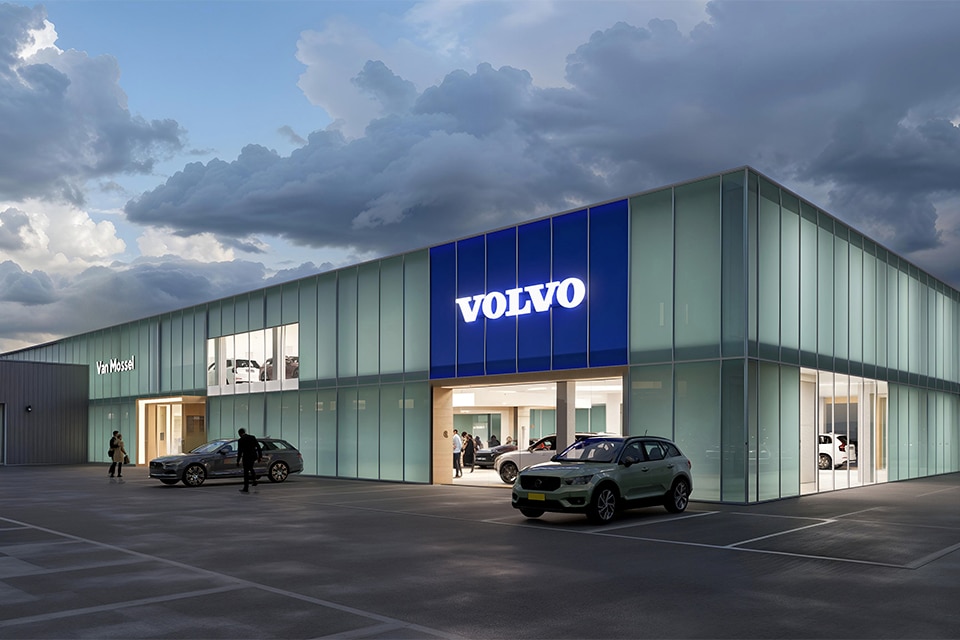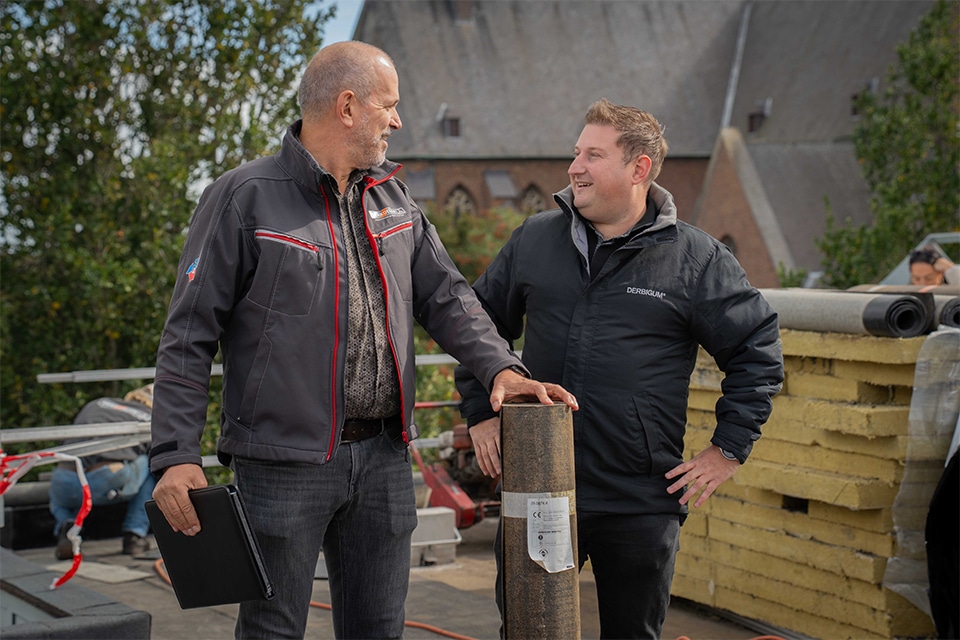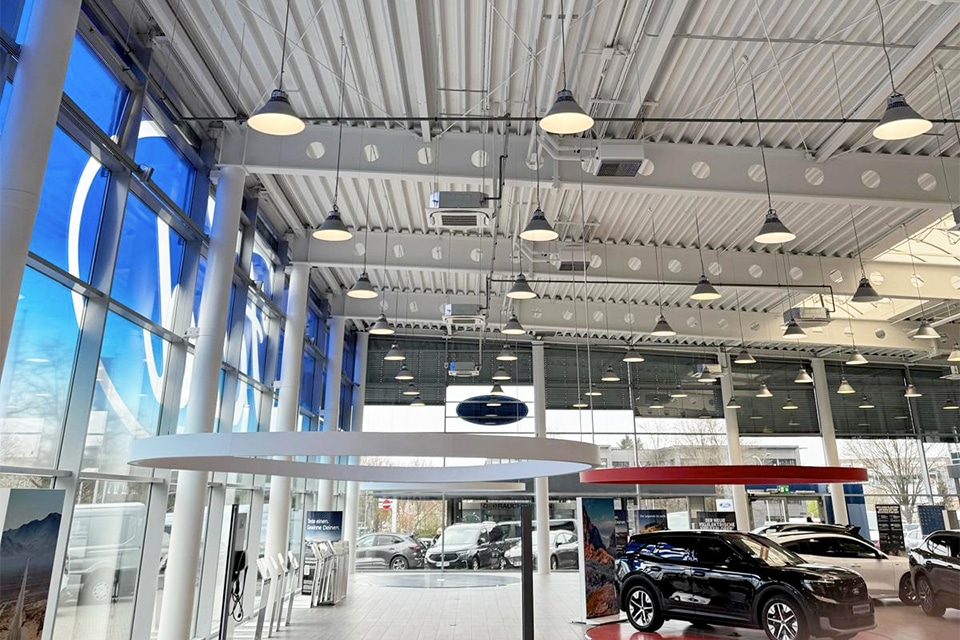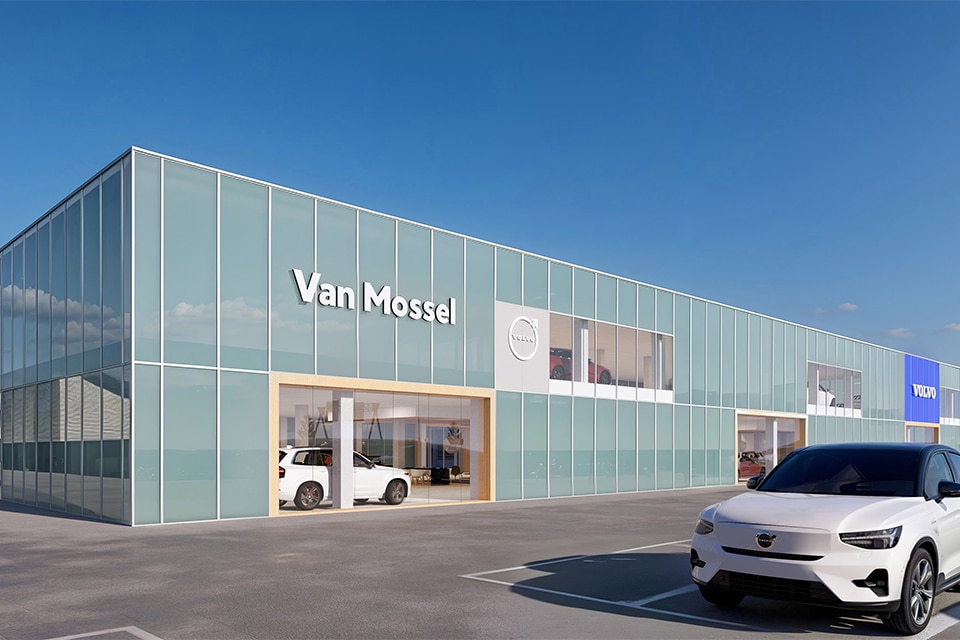
Responsible hygiene and water use in public buildings
The French-based manufacturer of sanitary solutions for utility use is known for its innovative product range. From taps to shower systems, from sanitary appliances to the latest flushing technology, Delabie develops everything from a very strong vision of the future. The products excel in design and ease of use, but are best known for their contribution to maximum hygiene, energy and water savings. Stedenbouw recently attended the webinar Delabie provided for professionals in the installation industry. Roos Ysebaert, marketing and communications manager for Benelux and Frank de Smet, sales director Benelux, were in front of the cameras. De Smet answered the questions Ysebaert asked him from the perspective of Delabie. Below is a summary of an otherwise superbly organized online event.

Unlike regular housing, where there are always a limited number of (regular) users of sanitation facilities, we see in public buildings that large numbers of people, with diverse views on hygiene and responsible use of public resources, use the sanitation facilities. De Smet: "This implies that public buildings have their own requirements. For the building owner, installation time, maintainability and lifespan of the materials are important. For the users they are ease of use and hygiene. Here we distinguish two levels of risk: on the one hand, the user himself is a risk, due to the chance of transmission of viruses and bacteria, on the other hand, the piping system poses a risk, for example, when water stands still in the pipes for a longer period of time and thus becomes contaminated. For example, with legionella."
So the first risk concerns the user. "Hand hygiene is important. Users touch all sorts of things in a day, such as door handles, so cross-contamination quickly occurs. If they then touch the faucet, transmission of viruses and bacteria can again occur through the faucet handle. Realize that 80% of all infections occur through hands! Not for nothing does the WHO recommend washing hands for 40 to 60 seconds. For Delabie this is nothing new, we have been carrying this message for some time."

The importance of the right product in the right place
How to ensure hygiene combined with water conservation? "Our sensor-controlled faucets take care of that. First the hands can be wet, the sensor registers the presence and the faucet starts running. During soaping, the faucet turns off. If one comes back to the faucet with the hands to rinse off, it reactivates. Soaping constitutes 70% of the total time spent washing hands. Just count the water savings that produces," De Smet outlines. "So it's important to have the right product in the right place. That combined with a set flow rate yields huge savings."

Toilet and urinal
It goes without saying that toilets and urinals must be flushed properly to prevent odor, poor hygiene and clogged pipes. Here, too, Delabie offers the solution. "Touching the flush button by hand again creates a risk of contamination. This is why we recommend contactless flushing, based on sensor control," explains De Smet. "Based on parameters, the correct flush is set according to the type of toilet or urinal. This takes effect when the user leaves the room. Suppose there is a large group of users in a short period of time, for example during the break at an event, the urinals activate mass mode. A smart system that gives a short flush after each user to make everything fresh again, so with a little water. If the system registers that the peak is over, then a large flush follows, so that the pipes are also cleaned again."

Public leaks
Delabie has figures that let us know that hundreds of gallons of water spill from leaks at public buildings on an annual basis. "That too can be prevented by saying goodbye to sinks. Direct connection to the water supply combined with sensor control therefore provides huge savings." There is also the risk of contamination from prolonged stagnant water in miles of water pipes in public buildings. "That can occur during vacation periods, for example. We prevent that by frequent automatic flushing. Delabie's electronic faucets provide periodic flushing starting 24 hours after the last use. That's better than automatic flushing every day."
Why choose Delabie? The company specializes in the utility market and is in constant contact with architects, contractors and installers. Delabie has both market knowledge and people skills and the know-how to work with the latest technologies. "Delabie is ahead of the prevailing public building standards. The fact that Delabie pays full attention to functionality and design, ease of installation and maintenance, vandalism resistance and comfort, those are real perks," De Smet concludes. "If you combine the energy and water savings with the time savings on installation and maintenance, it's a quickly made sum: the system quickly pays for itself."
Heeft u vragen over dit artikel, project of product?
Neem dan rechtstreeks contact op met Delabie.
 Contact opnemen
Contact opnemen




